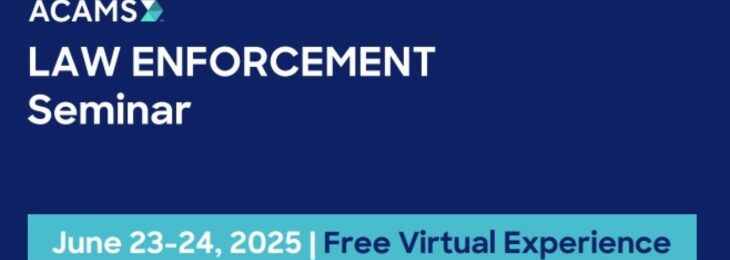
On March 30, 2016, the U.S. Capital Chapter hosted a chapter event titled “Yates Memo and Personal Liability: What it Means for You.” The U.S. Capital Chapter thanks Jonathan Lopez of Orrick, Herrington & Sutcliffe and James Vivenzio of the Office of the Comptroller of the Currency (OCC) for their joint presentation on personal liability.
At the start of the event, Lopez outlined the Department of Justice’s (DOJ) longstanding approach in cases against individual wrongdoers in criminal and civil investigations, and expanded on the implications of the Yates Memo. Attendees learned that the Yates Memo, which was issued in September 2015, has not changed the level of criminal liability. In fact, there are few significant changes as to how the DOJ governs such cases. Criminal and civil DOJ attorneys should routinely communicate with each other and share information. Notably, for a corporation to be eligible for consideration for cooperation credit it must provide all relevant facts on individuals related to the misconduct, regardless of their position or rank. Lopez emphasized that the memo pertains only to DOJ attorneys, but this does not mean that other regulators and law enforcement agencies are not also focused on personal liability.
The need to provide all relevant information prevents corporations from picking and choosing facts to provide, and reduces the chance that an individual will be chosen as a scapegoat for what may be an institutional or process failure. The DOJ will want to know what issues were raised, who raised them, where the ultimate failure occurred and why. In this way, the Yates Memo can actually help compliance officers. Lopez stressed that the Yates Memo does not change the standards governing criminal liability—there is still the need to prove someone willfully violated laws, rules and regulations.
However, there are still concerns that compliance talent will be driven out of the field for fear of personal liability. Questions remain about what full company cooperation with the government might mean, and whether companies will feel pressured to produce an individual to be held liable.
OCC Enforcement Actions
Vivenzio spelled out the different kinds of informal and formal enforcement actions that the OCC might take against individuals. Most frequently issued are informal actions, including Supervisory Letters and Letters of Reprimand—these letters inform the individuals of the act or practice of concern and reminds them of their responsibilities as officers or directors of the bank.
When formal enforcement actions are brought against individuals, they have often clearly violated law or regulations or engaged in unsafe and unsound banking practices. Individuals may be assessed a Civil Money Penalty, may be subject to removal and/or prohibition (removing the individual from their position and prohibiting them from working in any federally insured institution); a personal Cease and Desist Order, preventing an individual from continuing specific activities at a bank or compelling specified action; or a suspension in the case of a criminal conviction or indictment. Also, if an officer or director is convicted of certain crimes involving dishonesty or breach of trust, they are automatically prohibited from participating in the affairs of an insured depository institution for 10 years. In these situations, the OCC will send the convicted person an 1829 Letter informing the person of this statutory restriction in 12 U.S.C 1829.
Moreover, Vivenzio noted that Bank Secrecy Act (BSA) cases brought by the OCC against individuals are relatively rare—they require significant violations of law or regulation, they must be well supported, and the legal standards for the OCC to bring an action are high. Examples of individual BSA cases brought by the OCC include: 1) money laundering through the bank (Broadway NB), 2) failure to comply with OCC BSA enforcement actions (Pacific NB; Security NB) and 3) Ponzi scheme cases (Gibralter NB, TD Bank NA). Cases are typically brought against senior managers and directors who failed to comply with OCC BSA enforcement actions or against officers who violated the law or engaged in unsafe and unsound banking practices.
In addition, Vivenzio pointed out that it is challenging for the OCC to bring an individual action based solely on a compliance program breakdown at a national bank because this type of BSA breakdown frequently involves a series of decisions made by numerous people over long periods of time.
The culture of compliance and tone from the top are important. In order to prevent some of these issues, it is important to have adequate training and to make sure that expectations permeate the entire organization. To reinforce these expectations—in several recent enforcement actions taken by the OCC—the OCC required the banks to include BSA/AML requirements in the job description and performance standards for relevant employees, including business and relationship managers, to ensure that these employees were aware of their BSA responsibilities.
The U.S. Capital Chapter is grateful to speakers Jonathan Lopez and James Vivenzio, and to Orrick, Herrington & Sutcliffe for the use of their office space to hold this popular event.
For membership questions or further information about the ACAMS U.S. Capital Chapter, click here.










